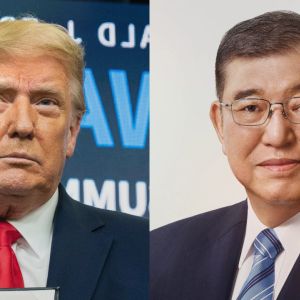Japan made a “big mistake” by demanding full tariff exemption from U.S.
3 min read
On Tuesday, Takeshi Niinami, who heads Suntory and chairs the Japan Association of Corporate Executives, criticized Tokyo’s take-it-or-leave-it approach in negotiations with Washington. He called it a “big mistake.” Niinami argued that Japan’s demand for complete relief from the levies President Donald Trump proposed left American negotiators feeling “betrayed.” He proposed that accepting a 10% minimum tariff, instead of insisting on zero, might have yielded more advantageous conditions. “They underestimated the determination of Trump,” he told the Financial Times . “They thought time was on Japan’s side. It was a big mistake.” Niinami warned that because 25% tariffs are coming, Japan’s negotiating power is weaker and it might have to give in to strike a deal. He warned there’s less time to reach a deal before the July 20 upper-house election, when Ishiba’s party could lose its majority. “It could be too late,” he said. Earlier in the year, the Japanese government swiftly initiated talks, aiming for a swift pact that would shield exporters from Trump’s threatened tariffs. However, on Monday the US administration imposed a 25% duty on imports from Japan, one percentage point higher than the April proposal, after negotiations failed. Trump introduced “reciprocal” tariffs for a number of Asian countries, such as South Korea, Malaysia, Thailand and Indonesia. Originally announced in April but postponed until July 9, these updated duties are set to be implemented on August 1 . HSBC strategists observed that Tokyo may struggle to concede more in talks. As the July 20 election draws near, the governing coalition is compelled to safeguard vital sectors, namely automotive exporters and rice producers, whose backing is essential. Trump called Japan “spoiled” as Tokyo refuses to budge Negotiations between Tokyo and Washington have dragged on for weeks, even as officials on both sides privately claimed advances. In recent days, Trump criticized Japan as “spoiled,” reproaching its reluctance to increase U.S. rice imports or grant entry to American-made vehicles. Niinami also criticized Japan’s inflexible farm policies. He argued that Ishiba’s refusal to prioritize the interests of rice growers over the auto industry weakened the late prime minister Shinzo Abe’s efforts to foster close ties with Trump. “Trump had high expectations of Japan because of Mr Abe, [and believed] Japan could become a showcase,” Niinami said. “We needed to analyze that level of expectation.” During discussions, Tokyo pushed for total exemption from the American tariffs, contending that the bilateral alliance warranted preferential treatment. Sources in both Washington and Tokyo indicate that lead negotiator Ryosei Akazawa, despite extensive calls and in-person negotiations, lacked the mandate to make concessions on duty rates. Supporting Niinami’s assessment, David Boling, the Eurasia Group’s director for Japan and Asian trade and a former U.S. trade representative, said Tokyo’s insistence on removing every levy was a grave misjudgment. He characterized that stance as “a fantasy,” and warned, “If Japan wants to reach a deal by August 1, it needs to be more pragmatic.” Yen weakness may offset tariffs On Tuesday, Akazawa spent about forty minutes meeting Howard Lutnick, the U.S. Commerce Secretary. Officials in Tokyo noted that he was “permanently ready” to travel to Washington for further negotiations. In early May, Masakazu Tokura, chair of the Japan Business Federation, recommended a “prompt but measured approach by hanging tough, digging in and negotiating with a sense of resolve.” At the same time, Mitsunobu Koshiba, who sits on the boards of multiple leading corporations, argued that a softer yen would cushion the impact of the duties. He observed that he would “be happy to take 145 yen in exchange for the tariffs,” compared to about 110 yen to the dollar during Trump’s first term. KEY Difference Wire : the secret tool crypto projects use to get guaranteed media coverage

Source: Cryptopolitan



